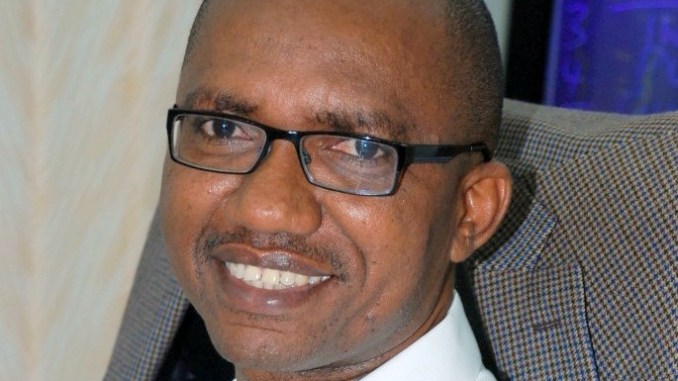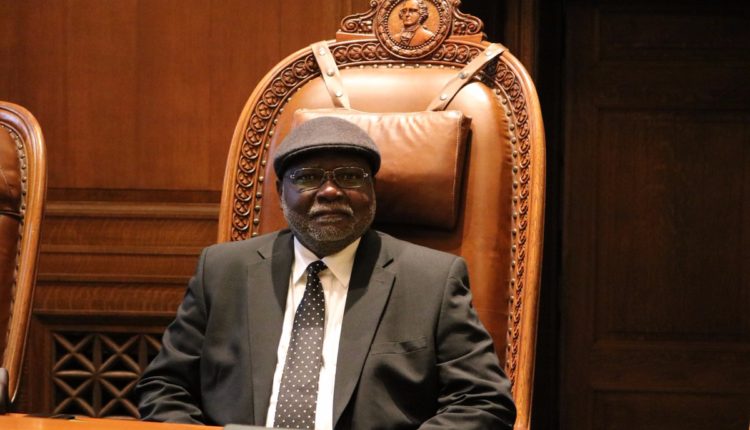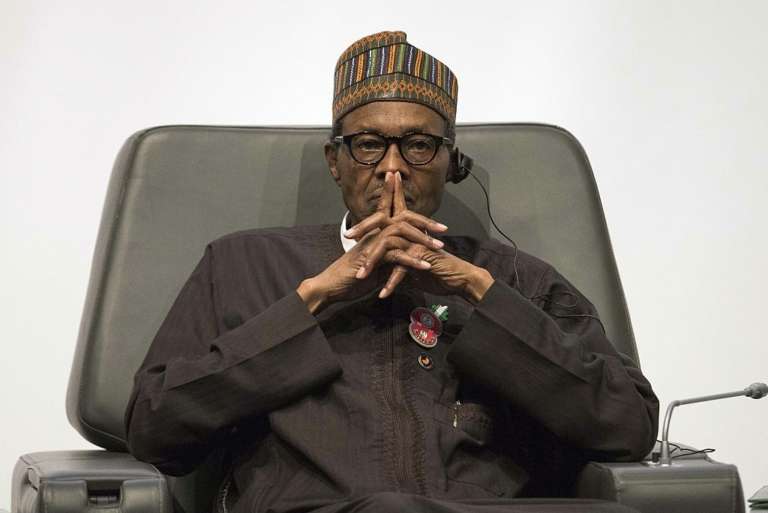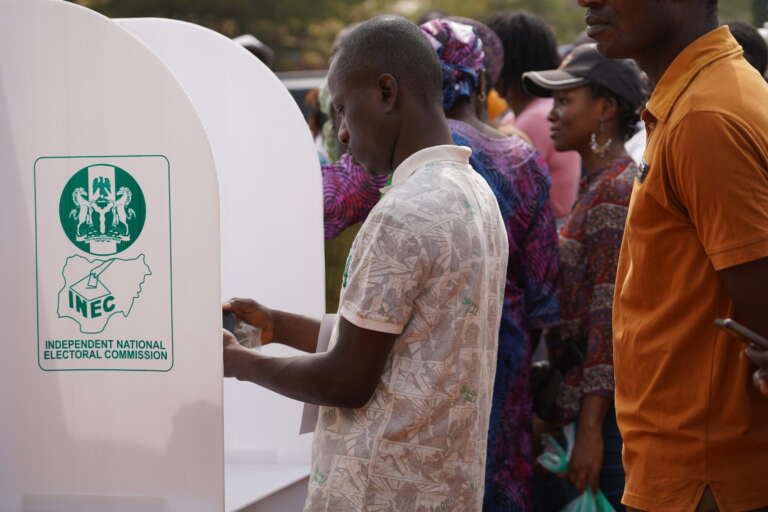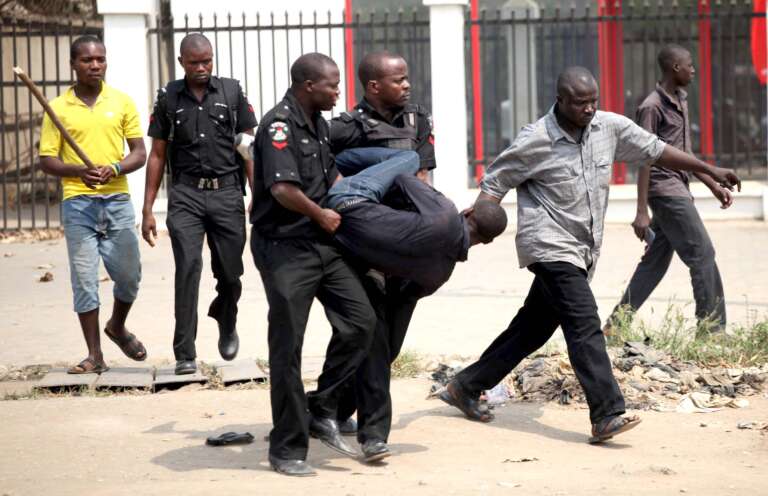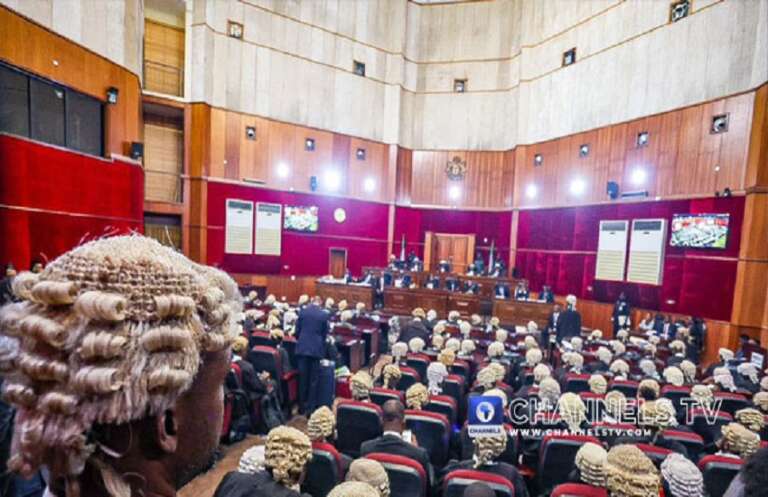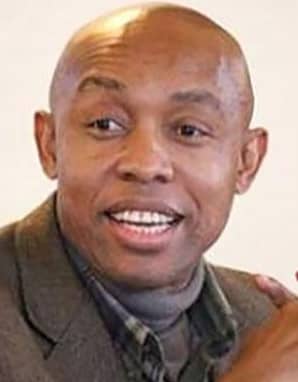By Sylvester Udemezue
1. BACKGROUND:
The Independent National Electoral Commission (INEC) is charged with the responsibility to organisze and oversee conduct of national and state elections in Nigeria, as well as elections into local councils in the Federal Capital Territory, Abuja. INEC was established in 1998, shortly before the 1999 general elections that marked Nigeria’s return to democracy in 1999. For many years thereafter, stakeholders had rued perceived manipulation of each round of elections in Nigeria, owing largely to the fact that the result management system had essentially been manual with the attendant weaknesses, leading to proliferation of election petitions after each round of elections. The Electoral Act 2022 was signed into law on 25 February 2022 with the aim of legitimiszing the e-management of election results, in addition to the existing manual processes, and by putting in place other safeguards towards promoting the integrity of the pre-election, balloting, and post-balloting processes thereby entrenching greater transparency in the election process and ensuring ensure that each round of elections comes out as a true reflection of the will of the electorate. A presidential election was held on 25 February 2023 to elect a replacement for outgoing President Muhammadu Buhari whose second 4-year tenure would elapse on 29 May 2023. INEC declared Bola Ahmed Tunubu winner of the election, but the outcome of the elections has been the subject of heated, widespread controversy, especially regarding INEC’s compliance with provisions of the Electoral Act and INEC Guidelines on transmission of election results, among other issues. While some Nigerians and observers (local and international) described the election as not transparent, not credible, especially because of widespread allegations that the post-ballot processes had got hijacked leading to manipulation of the results towards producing a predetermined result, owing to INEC’s failure to immediately upload election results in real-time, some other stakeholders describe the election as free and fair, and reflective of the will of the majority of Nigerians.
However, both INEC and the camp and supporters of the winner have advised those who were not comfortable with the outcome of the election, to go to court! Among those dissatisfied with the outcome of the presidential election results are Mr Peter Obi (presidential candidate) and his political party (Labour Party) and Alhaji Atiku Abubakar (presidential candidate) alongside his Peoples Democratic Party (PDP). Each of the two political parties and their candidates, among other, have since filed relevant election petitions (election lawsuits) at the Presidential Election Tribunal (the Nigerian Court of Appeal) challenging the election, by virtue of section 130(1)&(2)(a) of the Electoral Act, 2022, and Section 239(1)(a) and 285(5) of the Constitution of the Federal Republic of Nigeria, 1999.
However, it appears that the ever-dwindling public confidence in the Nigerian Judiciary, on account of widespread allegations of corruption, subservience, etc, has got so low that many people appear to not even believe that the courts will do justice in the pending petitions; many have voiced out their concerns in those regard. It was against this backdrop, and to allay people’s fears, ensure public access to the proceedings of the presidential election tribunal, that the President of the Nigerian Bar Association, Mr. Yakubu Chonoko Maikyau, SAN, during the quarterly meeting of the NBA-NECouncil held in March 2023, called on the 2023 Presidential Election Tribunal to allow a live broadcast (live streaming) of its proceedings, “in the interest of openness, justice, transparency and trust in the judiciary”. According to the NBA, _”a live telecast is in the interest of the people of Nigeria. Section 36 (1) and (3) of the Constitution of the Federal Republic of Nigeria provides that judicial proceedings should be conducted in public..Providing public access to the proceedings would meet the aspirations of the public to participate in the process”._[See: “
NBA President Calls For Live Telecast Of Tribunal Proceedings”; Daily Trust; 24 March 2023]. Justifying the call for live streaming, in a communique issued after the said quarterly of NBA’s National Executive Council (NBA-NECouncil) held in Birnin Kebbi, Kebbi State on 23 March 2023, and signed by NBA’s National Publicity Secretary (Akorede Habeeb Lawal Esq),
NBA-NECouncil stated that the NBA leadership believed that the general public was losing faith in the judiciary, and that live streaming of the proceedings would help the judiciary to regain public trust while creating a better perception of the judiciary as well as helping Nigerians who need to know firsthand the interpretation of relevant laws by the judges. The statement read in part:
“In view of the fact that public perception of the judiciary plays a key role in the public acceptance of its decisions, and to help boost the confidence of the public in the judiciary, which is currently at an all-time low, NEC, upon the proposal by the President, unanimously passes the resolution calling for live broadcast of the proceedings of the election petition courts and tribunals, particularly for the presidential election, by volunteering media houses. This will give citizens the opportunity to follow the proceedings, have better knowledge of the facts and an understanding of the reasoning behind decisions of the courts in those matters, particularly how the Electoral Act and other applicable laws are applied to election petition matters”. [see: “NBA Gives Reasons For Demanding Live Broadcast Of Presidential Election Proceedings”; The Whistler; 30 March 2023].
Since the publication of this communique, opinions have been divided among lawyers and other stakeholders on the need to live-stream the proceedings, the advantages and disadvantages of such live streaming, among others issues. The purpose of the present commentary is to throw my weight behind NBA’s call by showcasing some of the advantages of such live streaming especially at this time, and to show that live streaming of public-interest cases has become the in-thing, prevailing practice and accepted benchmark in many of the countries across the continents of the world. It’s thus proposed to advocate herein, that Nigeria hardly has any reasons to stand against such live streaming, considering its immense positive implications, and its appositeness especially at this critical time in Nigeria’s history. Specifically, the following are looked at in brief: objectives of live streaming of judicial proceedings; nature of live streaming; points to note (hints) about live streaming; perceived demerits of live streaming; proven advantages of live streaming; legal implications of live streaming; and the legal, social and global implications of Nigeria rejecting the call for such live-streaming at this critical point in time.
2. OBJECTIVES OF LIVE STREAMING OF COURT PROCEEDINGS:
Some identified objectives of live telecast/streaming of certain judicial proceedings include, among others: (a) to boost the faith of the people in the judiciary; (b) to activate the right to access justice; (c) meets the demand for a smart judiciary; (d) to reduce corruption; (e) to help to arrest irregularities in the judiciary; (f) to aid legal research, and help law aspirants and the general public to gain more knowledge; (g) to promote public interest and public confidence in the administration of justice. [See: “LIVE STREAMING OF COURT PROCEEDINGS IN INDIA”; <https://www.writinglaw.com/live-streaming-of-court-proceedings/>].
3. POINTS TO NOTES ABOUT LIVE STREAMING OF COURT PROCEEDINGS:
To clear some misplaced notions and misapprehension, there is need to explain some issues surrounding the nature of live streaming of judicial proceedings:
(I). Live streaming of court proceedings is not synonymous with virtual hearing or virtual proceedings of court. Hence, court proceedings can be streamed live without being virtual just as court proceedings can be virtual without being streamed live. A virtual proceeding does not need the physical presence in the court, of the parties to the suit, their counsel and witnesses; a proceeding is said to be held virtually when the court conducts its proceedings with the parties, counsel and witnesses participating in the proceedings, not physically but via remote (internet) means. Put differently, instead of the parties, counsel and witnesses coming physically in court, they join and participate in the proceedings through Zoom, Google Meet or other internet video-conferencing platforms. Such proceeding may not be projected on the YouTube, TV nor telecast to the general public in any other means. Only those who have access to the zoom link or Google Meet link, are able to join the proceedings. On the other hand, a proceeding is said to be live-streamed when all parties, their lawyers and witnesses are physically present in court with the judge and participating in/during the proceedings, but the proceedings are then being telecast, streamed live or projected to the public live through the YouTube, live Television or other means, such as Facebook live, video-recording and transmission, etc. It’s just like a political party holding a physical campaign rally with all party members and leaders physically present at the rally venue, but the proceedings are being telecast or otherwise projected live to the public in real-time. Further, the objective of a virtual proceeding is to enable parties, their counsel and witnesses to participate in the proceedings without the need to be physically present in court. On the other hand, the objective of live streaming is to let members of the general public have the opportunity of WATCHING and FOLLOWING proceedings of court live, from the comfort of their homes, offices and other places.
(II) Streaming is not meant to assist the PLAINTIFF/CLAIMANTS/PETITIONERS or the DEFENDANTS/RESPONDENTS. The objectives of live streaming go far beyond the litigants in the lawsuit; live streaming is an issue of public, national concern/interest. Thus, live streaming is done FOR THE PUBLIC, and not for the parties (litigants) themselves. Live Streaming becomes desirable or necessary because the general public is interested in the proceedings.
(III) LIVE STREAMING IS WHOLLY IN THE PUBLIC INTEREST: Live Streaming does not make the case of the PETITIONERS better or worse neither does it diminish or promote the case of the RESPONDENTS. Live Streaming is entirely about promoting public interest, the public good, public confidence and the interest of justice. “Public interest” is defined as anything affecting the well-being, the rights, health, or finances of the public at large; anything affecting the welfare or well-being of the general public; commonwealth [se: Dictionary.com]. According to Cambridge English Language Dictionary, the term “in the public interest” is used “when talking about people’s rights to know the facts about a particular situation”. “Public interest means something in which the public, the community at large, has some pecuniary interest, or some interest by which their legal rights or liabilities are affected“(State v. Crockett, 206 Pac 816, 817, quoted in Montgomery 1962, p. 222). “Public interest is something of serious concern common to the public at large or a significant section of the public, such as a disadvantaged or marginalised group. 2. For something to be of “public interest” it must amount to more than a private right or individual interest, although the two may coincide (https://www.legalaid.nsw.gov.au/for-lawyers/policyonline/glossary/public-interest). Finally on this, according to Law Insider, “in the public Interest” means “for the welfare of the nation or community, rather than…for a particular interest or group”.
(IV) It Is Not In All Cases That Live Streaming is Suitable/Desirable . Specifically, live streaming is not suitable for purely private or strictly personal lawsuits (examples: breach of contract, divorce, tort, defamation, land disputes or lawsuits arising from private commercial transactions); cases involving morality (examples are rape, defilement, etc); cases involving juveniles or minors, etc. Live Streaming is best-suited for lawsuits that have public-interest concerns: a perfect example is election petition/cases, especially presidential election petition, which is of public interest, national importance.
(V) PERCEIVED DEMERITS OF LIVE STREAMING: Like everything that is good or has advantages, live streaming is believed to have its own demerits, downsides, but, as is illustrated herein-below, the demerits appear argely unproven, speculative, while the advantages are tested and proven. Besides, the advantages far outweigh any demerits. Among the major concerns expressed, are (a) likely demonization of the judges and lawyers involved in the proceedings, that court participants could be recognized in public, which could lead to intimidation or otherwise jeopardize the safety of witnesses, lawyers and judges, or (b) that it may adversely hamper genuine courtroom engagement, or (c) that it may remove the focus from the final reasoned verdict which is binding, to oral proceedings which are not binding; or (d). that live streaming or televising trials could put the court at much greater risk of being influenced by public opinion, judging by the ubiquitous use of social media and the rise of the internet, or (e). that Lawyers (aware of their new audience) may choose to grandstand and play to the gallery. Thus, live streaming is thought to have the potential to simultaneously suppress desirable speech and enhance undesirable speech within the courtroom; or (f). that there is risk of sensationalism — opponents of live streaming of judicial proceedings point to famous televised trials that have taken place abroad (USA), such as that of OJ Simpson in 1994, or more recently, the 2014 trial of Oscar Pistorius (South Africa); it has been suggested that “both became sensationalized media circuses, leading to accusations that justice was being turned into a form of entertainment”. However, an apt response to this suggestion is that legal systems (jurisdictions) operate similar systems in different styles; so live streaming of court trials in other countries is not expected to operate exactly as is seen in the case of the USA. According to Brian Altman QC, “One has to understand the process in America against a background of complete almost unfettered freedom and discretion”. Some of these arguments were presented before Indian’s Supreme Court, against live streaming. That notwithstanding, the Supreme Court in the Swapnil Tripathi’ judgment (Swapnil Tripathy vs Supreme Court (2018), still ruled that a live telecast of court proceedings is “part of the right to access justice….” [See: “Why we should, and should not live stream Supreme Court proceedings”; IAS Toppers; 22 September 2022]. In that September 28, 2017 judgement, the then Chief Justice of India, Dipak Misra said of live telecast of court proceedings,that _“sunlight is the best disinfectant. Live-streaming as an extension of the principle of open courts will ensure that the interface between a court hearing with virtual reality will result in the dissemination of information in the widest possible sense, imparting transparency and accountability to the judicial process”. [Para 18(h)]_
All in all, as research has shown, many of the projected demerits are largely unproven, being mostly speculative and founded upon unfounded apprehensiveness. Live Streaming appears to be the prevailing trend across the globe, as my investigation has shown. Besides, it’s easily seen from this Indian Supreme Court ruling and media the reports around it [see for example, the IAS Toppers report], that as of 2018, India was already being viewed as standing _”alone amongst leading constitutional democracies in not maintaining audio or video recordings or even a transcript of court proceedings, which can be compensated by live stream broadcasting”. Thus, India’s Supreme Court ruling in favour of live streaming was partly targeted at repositioning India to immediately join what was the already seen as the prevailing global positively-impactful trend. Now, if by 2018 India had already considered itself to be lagging behind, which was why it had to quickly queue in, as seen in the Supreme Court ruling, would it not be shocking, strange, and befuddling, even awkward, seeing that some Nigerians still think that even by 2023, Nigeria is not yet ripe for live streaming in our courts, in deserving cases as pointed out above; moreso, considering the positive impacts and numerous advantages of live streaming? This now brings us to a highlight of some of the advantages of such live streaming, to which I now turn my attention.
4. SOME POSITIVE IMPLICATIONS AND ADVANTAGES OF LIVE STREAMING OF JUDICIAL PROCEEDINGS IN SUCH PUBLIC-INTEREST CASES:
(1). LIVE STREAMING PROMOTES ACCOUNTABILITY AND TRANSPARENCY IN JUDICIAL PROCEEDINGS: Live-streaming of court proceedings serves as an instrument for greater accountability and transparency, especially on the part of participants in the judicial proceedings — judges, lawyers, parties and witnesses, etc.
(2). LIVE STREAMING ENHANCES PUBLIC/OPEN ACCESS TO JUSTICE: Live Streaming enhances easy access to court proceedings, for persons who have to otherwise travel long distances to come to the court to watch the proceedings live. According to Indira Jaising, “Live-streaming and videography of the proceedings of court in matters of great public importance is in keeping with the principle of open access to justice and ensure justice is not only done but is seen to be done”. He believes, and I agree, that this would inspire confidence in the functioning of the judiciary as an institution and help maintain the respect that it deserved as a co-equal organ of the state. Om my part, I had cause to make the following observations in one of my published commentaries:
“Access to justice [is] a human right that must respected and could be enforced…. paragraphs 14 and 15 of the United Nations’ Declaration of the High-level Meeting on the Rule of Law recognizes that access to justice is a basic principle of the rule of law in the absence of which people are unable to have their voice heard, exercise their rights, challenge discrimination or hold decision-makers accountable. ‘The Declaration emphasises the right of equal access to justice for all, including members of vulnerable groups, and reaffirmed the commitment of Member States to taking all necessary steps to provide fair, transparent, effective, non-discriminatory and accountable services that promote access to justice for all”.[See: “The Federal High Court (Federal Inland Revenue Service) Practice Directions, 2021 and Questions of (Dis)Respect for Rule of Law, Human Rights and Access to Justice”; 15 June 2021; Lawbreed.blog]
(3). LIVE STREAMING REDUCES INCIDENT OF FAKE NEWS AND FAULTY MEDIA REPORTING: Allowing live-streaming or recording or video-recording of court proceedings would avoid multiple versions of the proceedings, or wrong projections of court rulings or the menace of fake news or faulty reporting arising from “infodemic” which is currently ravaging the world especially Nigeria. According to the World Health Organisation, an infodemic is too much information including false or misleading information in digital and physical environments. Put differently, an infodemic is an excessive amount of information about a problem that is typically unreliable, spreads rapidly. Live Streaming encourages the principle of open court, effectuating the public’s right to know and reduces dependence on second-hand, sometimes third-hand, faulty or distorted views and accounts.
(4). LIVE STREAMING PROMOTES PUBLIC RIGHT TO BE HEARD AND TO KNOW: Those who are affected by the judgements of the court have a right to be aware of the manner in which decisions were taken. Enabling citizens to understand the reasoning in cases affecting their rights forms part of their right to dignity and is an intrinsic value of their right to be heard. In the Nigerian situation, all the over 220 million Nigerians are interested in the leadership of the country; leadership may make or mar a country. A country could be thrown into abysmal backwardness and retrogression, even war or other vices, as a result of bad governance or absence of good governance. The electoral process is the leadership recruitment process for any nation. The outcome of each election is thus a matter of great concern to the citizens, even to residents and investors in the affected country. In Nigeria, because of rampantly persistent, but largely not frivolous, allegations of election rigging or manipulation of the electoral process, the final results of much of the elections are determined by the court, since the outcome of almost every election is usually challenged in court leaving the court to determine the validity of the election or who the true winner is in each given instance. As a result of this, there is so much interest, generated by election petitions/lawsuits in Nigeria, thus making each round of election petition proceedings a matter of national importance generating huge amount of interest and creating immense tension, with a great majority of the citizens keen on following up with the proceedings and developments in these ongoing petitions. This makes live streaming a beautiful, reasonable option.
(5). LIVE STREAMING ENHANCES PUBLIC ENGAGEMENT WITH LAWS, AND PROMOTES LEGAL LITERACY AMONG THE CITIZENRY: Live Streaming of cases of constitutional or national importance is a progressive step as such cases impact various aspects of people’s lives. People’s ability to participate in this conversation by watching these proceedings live will not only increase legal literacy but also potentially enhance the public’s continuous engagement with the Constitution and the Laws of the Federation.
(6). LIVE STREAMING ACCORDS WITH THE LEGAL CONCEPT OF “JUSTICE SEEN TO BE DONE”: Live streaming upholds the cardinal principle of justice: that justice should not only be done, but that it should also be seen to be done. As observed in the Nigerian case of ZAMANI v. STATE* (2015) LPELR-24595(CA), “One important object, at all events, is to clear away everything which might engender suspicion and distrust of tribunal, and so to promote the feeling of confidence in the administration of justice which is so essential to social order and security…The reason is plain enough. Justice must be rooted in confidence; and confidence is destroyed when right-minded people go away thinking: ‘the judge was biased.’…. As Lush, J., said in Serjeant vs. Dale (1877) 2 Q.B.D. 558, 567”. Also, Lord Heward, C.J., said in the UK case of *R. vs. Sussex Justices, ex p. McCarthy* (1924) 1 K.B. 256, 259 that, “it is not merely of some importance, but is of fundamental importance that justice should not only be done, but should manifestly and undoubtedly be seen to be done.” See also R. v. Amber Valley DC, ex parte Jackson [1985] 1 WLR 298, [1984] 3 All ER 50.
(7). LIVE STREAMING INSTILLS DISCIPLINE IN THE MEMBERS OF THE COURT: It instills discipline and improves court proceedings by improving how judges and lawyers conduct the proceedings, as they will be aware that the public is watching.
(8). LIVE STREAMING IS AN EXTENSION OF THE RIGHT TO FREEDOM OF EXPRESSION: Since 2017, the Supreme Court of South Africa has allowed the media to broadcast court proceedings in criminal matters, in addition to some others, as an extension of the right to freedom of expression. [See: “Promoting Access to Justice through the Broadcasting of Legal Proceedings”; K.B.Mufamadi and L.J. Koen; Potchefstroom Electronic Law Journal (PER) vol.25 n.1 Potchefstroom 2022 <http://dx.doi.org/10.17159/1727-3781/2022/v25i0a8122>.
(9). RESEARCH SHOWS THAT LIVE STREAMING HAS LITTLE OR NO NEGATIVE IMPACT. Live Streaming have been shown to have little to no negative effect on court proceedings; on the contrary, it improves the administration of justice because the court is subject to greater public scrutiny. ‘Research conducted in 2000 on the impact of using cameras during UN International Criminal Tribunals found that court participants – which includes witnesses, lawyers and judges – are “not affected by cameras in court” and most felt that “cameras have a positive effect, or no effect, on the administration of justice”.’ [see: “The pros and cons of streaming trials online”; The Week; 30 June 2022]. See also “Television in Our Courts – The Proven Advantages, the Unproven Dangers” By N. Davis; NCJ Number 70167, Journal Judicature Volume: 64 Issue: 2 Dated: (August 1980) Pages: 85-92. published on the official websites of the US Government Department of Justice, Office of the Justice Programs: www.ojp.gov.
(10) NIGERIAN LAW IS NOT AGAINST, BUT RATHER IN FAVOUR OF, LIVE STREAMING OF COURT PROCEEDINGS: Respectfully, there appears to be not one legislation or court decision in Nigeria that expressly or even impliedly forbids or frowns against/at live streaming of judicial proceedings. On the contrary, live streaming appears to be in line with the spirit and intendment of our laws and the constitution. By the constitution, it’s fundamentally required that court *proceedings* be held IN PUBLIC or PUBLICLY or that the public be allowed access to court proceedings. Now, would an order of court (leave of Court) approving that a court proceeding be live-streamed go against the existing requirement of the law that court proceedings be held publicly? In the case of *AG LAGOS V AG FEDERATION (SUIT NO: SC/CV/260/2020),* the Supreme Court of Nigeria held that virtual court proceedings are not unconstitutional. If virtual proceedings are not unconstitutional, why would a court hesitate to approve live streaming which accords with that judgement of the Supreme Court; if the proceedings are projected by Zoom or by other Virtual or live means or televised to enable members of the public who can’t make it to Abuja, to have an opportunity of viewing/watching the proceedings in real-time, that itself promotes publicity of trial which the constitution enables as a fundamental right. Further, under the *inherent jurisdiction* of the Court, the Court is entitled to allow proceedings be telecast or be otherwise made available via other virtual means for public viewing, especially in this instance, where the law already commands that proceedings must be held PUBLICLY. Live Streaming promotes the Constitutional requirement that the public should be allowed access to court proceedings. Section 36(1) Constitution of the Federal Republic of Nigeria (CFRN), 1999 provides that “In the determination of his civil rights and obligations, including any question or determination by or against any government or authority, a person shall be entitled to a fair hearing within a reasonable time by a court or other tribunal established by law and constituted in such manner as to secure its independence and impartiality”. Section 36(3) of the Constitution provides that “The proceedings of a court or *the proceedings of any tribunal* relating to the matters mentioned in subsection (1) of this section (including the announcement of the decisions of the court or tribunal) shall be held in public”. Some of the obvious implications of the above Constitutional provisions is that (a) the term, “the proceedings of any tribunal” includes the proceedings of the 2023 presidential election tribunal; and (b) all provisions of the Constitution on PUBLICITY OF TRIAL apply equally to the proceedings of the presidential election tribunal. Thus, the requirements of publicity and public access to trial are more in consonance with live streaming than against it, because live streaming promotes the objectives of the requirements for publicity of trial. Finally, live streaming is in line with modernity and reasonableness.
(11). The Court of Appeal Rules, 2021 expressly encourages, indeed has legitimized, public access to the Court of Appeal proceedings through REMOTE MEANS in desirable circumstances as the court may determine. Order 21(1) provides that the Court of Appeal may conduct its Proceedngs virtually where it deems fit. Order 21(2) then provides that _”virtual hearing shall be by means of any audiovisual platform approved by the Court and a link will be provided to enable the public to observe the virtual proceedings”. It’s respectfully submitted that the expression “a link will be provided to enable the public to observe the virtual proceedings” implies that the Court of Appeal Rules already authorizes live streaming or that members of the public who may not be physically present in the Court, could in deserving circumstances be allowed virtual access to its live proceedings by making the link to an audiovisual platform available publicly to enable interested members of the public to watch the court’s proceedings live, from the comfort of their offices, homes and everywhere. What this means is that the Court of Appeal Rules encourages open public access to its proceedings through virtual means. Although election petition is said to be sui generis, yet it’s respectfully submitted that since there is no provision in the Electoral Act specifically dealing with live streaming or live broadcast of proceedings of an election tribunal, resort could be had to Order 21 (2) of the Court of Appeal Rules, 2021 which encourages public access to the court’s proceedings through REMOTE means, to allow live broadcast of the proceedings of the Court of Appeal sitting as the 2023 Presidential Election Tribunal. It is further submitted that the provisions of Order 21 (2) of the CA Rules, 2021 extends to all proceedings of the Court of Appeal — including when it’s exercising its appellate jurisdiction and when it’s exercising its original jurisdiction. One of the instances of the original jurisdiction of the Court of Appeal is when it’s sitting as the Presidential Election Tribunal pursuant to Section 239(1) of the Constitution of the Federal Republic of Nigeria,1999, to determine a question whether anyone has been validly elected to the office of the President or the Vice President of the Federal Republic of Nigeria. The bottomline is that granting members of the general public access by REMOTE means to the proceedings, any proceedngs, of the Court of Appeal is not alien to the Constitution or the Court of Appeal Rules. Accordingly, it would not be out of place if allowed in the present scenario, especially as such appears both reasonably necessary and most desirable and apt, being in the best interest of the public and justice, as explained above.
5.CONCLUSION
Permit me to ask these questions: to those seniors, colleagues and Nigerians who advance such argument as that Live Streaming would endanger the lives, safety or security of the judges and lawyers involved in the election petition proceedings, please,
(A) How many judges, lawyers, witnesses or parties who got involved in cases that were live streamed, have been attacked or otherwise found to have suffered any harm to their security and safety in all the countries where live streaming is being practiced or has taken root; examples: China, UK, Australia, USA, Canada, South Africa, and Kenya, among numerous other countries? Are we aware that recently, in Kenya, the Supreme Court upturned a Presidential Election result after a trial which was live-streamed from begining to the end? Till date, no harm has been reported/heard to have befallen any of their Lordships.* See: (a). *[VIDEO] WATCH LIVE STREAMING OF PROCEEDINGS OF THE PRESIDENTIAL ELECTION TRIBUNAL OF KENYA.* https://www.youtube.com/live/axtgMZeyAmc?feature=share. (b). https://www.youtube.com/live/w-OSHd5FNQs?feature=share; (c). https://www.youtube.com/live/2ZnjE5HcTsY?feature=share; (d) https://www.youtube.com/live/2Ge92Wx8-js?feature=share;
(B). Is there any judge involved in, or lawyer appearing before, the 2023 Presidential Election Petition, who is not already known to members of the public? The names of the lawyers acting for each of the litigants/parties (Candidates, political parties and INEC) in each of the pending petitions, were published to the public upon their engagement. Similarly, the names of the justices of the Court of Appeal handling the petitions were published to the public during the inaugural sitting of the Tribunal. Thus , all the judges and lawyers actively involved or who are appearing before the Tribunal are already known to the public. This notwithstanding, no harm has befallen any one of them on account of their said Involvement. Now, since, they are already known to the public, how reasonable is it for anyone to still argue that live streaming or broadcast of the proceedings could expose them to danger or otherwise jeopardize their safety or security? With due respect, such an argument appears to not add up.
(C). Does Nigeria operate outside the world/ the planet earth, such that some of us just have refused to allow Nigeria, the so-called giant of Africa, join positively impactful practices that represent prevailing international benchmarks and 21st-century progress-oriented global trends? Why must some people in Nigeria desire to do everything upsidedown, or in a backward or awkward manner, thereby projecting and (re)presenting our country as a country of people who have rejected practcises and semblances of civilization or are cursed or condemned to remain in perpetual backwardness, perennial darkness and unceasing stagnation? How would anyone outside Nigeria (I mean, right-thinking members of the civilized, enlightened world) feel, reading or hearing that in Nigeria of 2023 (a country seen as Africa’s “giant”, the most populous black nation on planet earth, and whose citizens are adjudged the most-highly-educated in the USA), opinions are still divided about whether or not to allow live streaming of court proceedings in high-profile cases of PUBLIC INTEREST, such as that of the 2023 Presidential Election Tribunal? I respectdully urge us to bear in mind that the way the world feels about us depends on how we have presented or projected ourselves and our country to the word; and the way the world views us, determines how seriously the world treats or takes us. Hence, as the saying goes, one is addressed the way one is dressed; the way you present your country is the way your country is received. If you project your country as a refuse bin, the world would feel no qualms to dump refuse upon your country. Was it any shocking that Barack Obama as the then President of the USA, had visited all countries around Nigeria’s backyard , but carefully and deliberately avoided Nigeria like one avoids plagues. Recently Kamala D. Harris, the Vice President of the United States of America, came visiting around our backyard, but carefully avoided the “giant of Africa”. Yet we do not do self-questioning, self-assessment, introspection, to check what is wrong with us. Meanwhile, what manner of giant are you when you’re the last and indeed you “carry last” in virtually everything save the negative [Yahoo-Yahoo, Yahoo-Plus, Corruption, Bad Governance, Violence, Disunity, Debased Electoral System, Debased Leadership, Delinquency, Debased and corrupted religion, and the like], while everyone and everything positive are carefully running away from you? Almost all the positive, progress-oriented things that most countries have since embraced, Nigeria is still running far away from. Truth is, NIGERIA is far behind and might so remain unless we repent. And I respectfully submit that it’s not our destiny to be backward; Nigeria appears to have purposely elected to remain stagnant and backward-moving. It’s by design, a function of our choices. As you make your bed, so you’d lie on it. It was John C. Maxwell who once declared that “Life is a matter of choices, and every choice you make makes you.” Thus one makes one`s own choices, but must be prepared to live with the consequences of those choices. “All great choices”, says Cathlin Shahriary, “are made with great risks. You must decide for yourself if the consequences are worth the action you are willing to take.”
(D). By rejecting live streaming, what are some people afraid of? Do those who are against live streaming, love the affected judges and lawyers more than other Nigerians? Or are we saying that NBA and those who support live streaming are enemies or haters of the judges or of Justice?
(E).If we agree that Live Streaming neither PROMOTES nor DIMINISHES the case of either the Petitioners or the Respondents, but merely PROMOTES public access to the proceedings towards, in turn, promoting/restoring public confidence, transparency and accountability, why would we oppose what is in the public interest?
(F). Judging from recent events, and since, many Nigerians now appear to think (the news and perception are out there) that the acronym, _*”Go to court”*_ is used by people who perhaps have plans to manipulate administration of justice, why not we allow live streaming to leave no one in doubt about the goings-on in the tribunal and in that process, enhance public confidence and satisfaction, that that justice has not just been done but was seen in full public glare to have been done?
(G). With due respect, I am not a politician and I am neither for the Petitioners nor for the Respondents in the 2023 Election Petition Tribunal currently pending before the Presidential Election Tribunal (the Court of Appeal). I am not in any way involved in the 2023 presidential election petitions in Nigeria. I speak and write as a non-aligned Nigerian, a disinterested Researcher, Public Interest Writer/Commentator, Concerned Observer, Law Teacher with specialist Interest in Court Litigation Procedure, Corporate Law and Governance, in addition to Property Law Practice and Conveyancing, Constitutional and Administrative Law, Human Rights, ADR, Administration of Justice, International Law, Professional Ethics and Legal Skills, etc. As such, I respectfully personally submit that if I were involved, either as counsel to the Petitioners or to the Respondents, in any election petition proceedings or in other lawsuits of constitutional or public-interest importance, I would not say anything against live streaming. My reasons are not far-fetched: (i) I strongly believe that live streaming would not militate against my clients’ interest but would rather promote the best interest of justice, public interest, and the public good; (ii) Besides, as a Minister in the Temple of Justice, equally with the judge, a lawyer’s duty to the interest of justice and public-interest is much higher than (and indeed superior to) the the lawyer’s specific duties to his clients in court any particular case. In the UK case of *R.V. O’Connel* (1844) 7 Lr P. 261 at 312-313, Crampton, J, had this to say:
“… I would say to the advocate upon the subject, let your zeal be as warm as your heart’s blood, but let it be tempered with discretion and with self respect, let your independence be firm, uncompromising, but let it be chastened by personal humility, let your like for liberty amount to a passion but let it not appear to be a cloak for maliciousness…the office of the advocate …is a high one ….He gives to his client the benefit of his learning, his talents and his judgment, but….He will ever bear in mind that if he be an advocate of an individual, yet he has a prior and perpetual retainer on behalf of truth and justice and there is no crown or other licence, which in any case or for any party or purpose can discharge him from that primary and paramount retainer.”
Also, in the case of *Rondel v. Worsley* (1967) 1 Q B 441, Lord Denning, MR declared that “As an advocate, he is a minister of justice equally with the judge. He must do all he honourably can on behalf of his client. I say all he honourably can because his duty is not only to his client. He has a duty to the court, which is paramount. He owes allegiance to a higher cause. It is the cause of truth and justice. He must disregard the most specific instructions of his client if they conflict with his duty to the court. The code which requires a barrister to do all this is not a code of law. It is a code of honour..…”
Finally, the Preamble to the Code of Conduct for Lawyers in the European Community (the CCBE Code of Conduct, 1989), provides as follows (and it’s respectfully submitted that Nigeria should not accept a lower standard):
“In a society founded on respect for the rule of law, the lawyer fulfils a special role. His duties do not begin and end with faithful performance of what he is instructed to do so far as the law permits. A lawyer must serve the interest of the just as well as those whose rights and liberties he is entrusted to assert and defend; it is his duty not only to plead the client’s cause but to be his adviser. A lawyer’s function therefore, lays on him a variety of legal and moral obligations (sometimes appearing to be in conflict with each other) towards the client, the courts and other authorities before whom the lawyer pleads his client’s cause or acts on his behalf, the legal profession in general and each fellow member of it. In particular, he owes a duty to the public for whom the existence of a free and independent profession, bound together by respect for rules made by the profession itself, as an essential means of safeguarding human rights in the face of the power of the state and other interests in society.”
I accordingly stand with the Nigerian Bar Association (NBA) on this matter. May I use this opportunity to additional observe that NBA’s call is in line with the objectives for which the NBA was established, as set out in Section 3 (2),(3),(4),(5),(6),(9),&(11) of the Constitution of the NBA, 2015, to with: Promotion and advancement of Legal Education, Continuing Legal Education, Advocacy and Jurisprudence; Improvement of the system of administration of justice, its procedures, and the arrangement of court business and regular law reporting; Establishment, maintenance, and operation of a system of prompt and efficient legal aid and assistance for those in need but who are unable to pay for same; Promotion and support of law reform; Maintenance of the highest standard of professional conduct, etiquette and discipline; Encouragement and protection of the right of access to courts at reasonably affordable fees and of representation by counsel before courts and tribunals; and Promotion and protection of the principles of the rule of law and respect for fundamental rights, human rights, and people’s rights.
POST SCRIPTUM: This is strictly a personal opinion. And I offer my humble opinion WITHOUT PREJUDICE to whatever the courts may in future decide (with which we are bound,in line with the rule of law), and with utmost respect to my respected seniors, colleagues and members of the public who hold a different opinion on this issue.
Long live the legal profession!
May God help Nigeria!
Respectfully submitted,
Sylvester Udemezue (Udems)
08109024556.
[email protected].
(20 May 2023)

